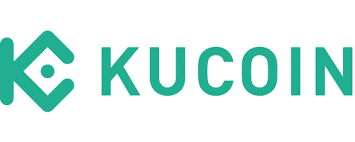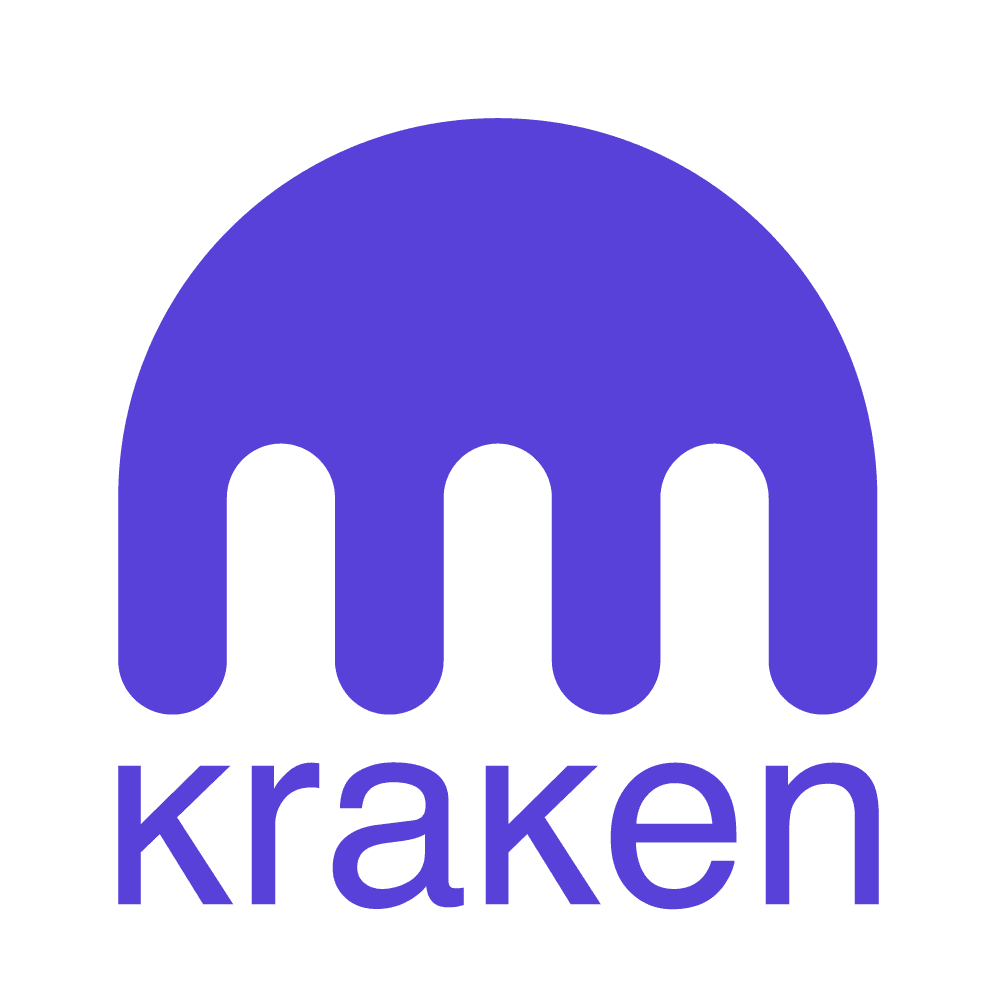We do our best to keep on top of all the latest developments. However, please be aware that the fast-paced nature of the cryptocurrency world means there may be shifts in fees, specific services, and the numbers of available cryptos. Check out our list of the best cryptocurrency apps and exchanges for the most up-to-date information on the platforms we recommend.
Experienced cryptocurrency traders can get the most out of KuCoin's advanced features, low fees, and wide range of coins. However, KuCoin is not licensed to operate in the U.S. and that drags on our rating. Read our full KuCoin review to find out if you should open an account.

Bottom Line
One of the biggest pitfalls for KuCoin right now is that it's not licensed in the U.S. It's a platform with a lot of potential, but is best right now for experienced traders living outside the U.S.
Fees:
Fees vary
Account Minimum:
$0
Alternatives to consider
Full KuCoin review
This cryptocurrency exchange is a good fit for: Experienced non-U.S. cryptocurrency traders who want access to more coins and advanced features.
Pros
- Low fees
- Strong user base
- Wide range of coins
- Earn interest on your crypto
- Advanced trading features
- Good customer service
Cons
- Not licensed in the U.S.
- Limited payment methods
- Not for new traders
- Limited educational resources
The SEC advises investor caution when it comes to crypto and filed charges against several crypto platforms in 2023. It says that a number of popular cryptocurrencies -- including Solana, Cardano, and Polygon -- are unregistered securities. This could impact the way these and other cryptos are traded in the U.S. As a crypto investor, make sure you understand how the SEC cases and proposed regulatory changes could impact your portfolio.
Top perks
KuCoin has a lot to offer investors, including the following.
Low fees
KuCoin's trading fees are among the lowest we know of. You don't pay any monthly account fees, and the withdrawal fees are in line with other exchanges. It is free to deposit crypto, but you will pay to deposit fiat (traditional) money like U.S. dollars. The fee depends on how you transfer cash and what third party app you use.
Strong user base
KuCoin claims 1 in 4 crypto holders worldwide use its service. The big advantage to such a strong customer base is that it adds liquidity to the market -- you're more likely to be able to make the trades you want because there are more people trading. It also means you can likely join an active community of traders who speak your language.
Wide range of coins
KuCoin has a much broader selection of cryptocurrencies than you'll get at many exchanges or brokerages. If you want to branch out into less popular coins, KuCoin is worth a look. It also has a Spotlight section that promotes new currencies so people can get in early. Just be aware that new or lesser-known coins carry more risk than mainstream ones.
Earn interest on your crypto
The KuCoin Earn service pays interest on your cryptocurrencies in two ways: You can stake coins through Pool-X, a KuCoin-backed company, or you can loan out your crypto and get paid the interest.
Staking is a bit like earning stock dividends -- certain cryptocurrencies use staked coins to help validate the network and keep it secure. You earn rewards if you agree to tie up your coins for a set amount of time.
The interest you'll earn by loaning out your crypto is more than you'd get with a traditional savings account, though it varies by coin and demand. KuCoin says you can earn 8% to 12% on average. This money finances KuCoin's margin trading. The company says lenders will always be repaid in full, either from the borrower's collateral or from a KuCoin margin insurance fund. That said, you won't have the same protections you'll get with a normal bank, so make sure you're comfortable with the additional risk.
Advanced features
KuCoin has a lot of extra features, though you'll need to think carefully about whether you want to use them. For example, margin trading allows you to leverage your position, which is essentially borrowing money to buy more crypto. Only very experienced traders should use leverage because it makes cryptocurrency -- an already risky investment -- even riskier.
KuCoin also allows you to use trading bots through its mobile app. Trading bots can automatically buy and sell your cryptocurrencies so you don't have to be online all the time to follow the market. However, crypto bots are not as developed as robo-advisors. Some have technical glitches, for example. Plus, it's not always clear how they're investing your money, and you need to understand the cryptocurrency trading strategies they use. If you're buying for the long term, bots don't add a lot to the mix.
TIP
We’ve found one company that’s positioned itself perfectly as a long-term picks-and-shovels solution for the broader crypto market — Bitcoin, Dogecoin, and all the others. In fact, you've probably used this company's technology in the past few days, even if you've never had an account or even heard of the company before. That's how prevalent it's become.
Sign up today for Stock Advisor and get access to our exclusive report where you can get the full scoop on this company and its upside as a long-term investment. Learn more and get started today with a special new member discount.
What could be improved
Not licensed in the U.S.
A customer support representative said the exchange only provides services for countries listed on its Know Your Customer (KYC) page, which does not include the U.S. KYC involves filling out personal information and uploading your photo ID to help authorities combat money laundering.
The United States has strict regulations for cryptocurrency exchanges, and KuCoin is not licensed to operate in the states. If you live in the U.S, you may be tempted to use KuCoin without completing the KYC verification. You'd have restrictions on how much you could withdraw, and how much leverage you could access.
There are a couple of risks here. First, if the U.S. cracks down on people accessing unlicensed exchanges, your assets might get frozen. Second, KuCoin doesn't offer the same support to unverified accounts in the case of hacking, fraud, or theft. So proceed with caution if you're a U.S.-based user.
Since there are a number of excellent cryptocurrency exchanges that are licensed in the U.S., it makes sense to check them out before signing up with KuCoin.
Limited payment methods
KuCoin does let you buy cryptocurrency with fiat money, but you'll need to do it through a third-party app. It has over 70 different payment methods, but it isn't always possible to deposit money by bank transfer. And the fees can be steep. I get around these fees by depositing crypto I bought using other exchanges directly onto KuCoin, which is free.
Also, you'll need to immediately buy a set amount of one currency. For example, you could buy $200 worth of Tether (USDT), a stablecoin that's pegged to the dollar. You'd then be able to use Tether to buy other currencies. You couldn't simply deposit that $200 and wait for the right time to invest it. Other exchanges let you deposit money and then choose how and when you want to spend it.
Not for new traders
If you're new to cryptocurrency, KuCoin's site is not easy to use. The Fast Buy function didn't work at all when I tried it, and the peer-to-peer trading options were only open to people who'd completed the KYC verification process. That said, I did get quick responses from the live support chat.
KuCoin has some educational resources, but I'd like to see a lot more, especially given the number of coins you can buy. There is some information available on new coins, but not a lot, so you'll need to do your research elsewhere.
How KuCoin works
KuCoin lets you buy, sell, and store a wide range of cryptocurrencies. It has a web interface as well as a popular mobile cryptocurrency app. You can buy KuCoin's native token (KCS) to reduce fees and earn rewards.
The account verification process is optional, so people can trade crypto with just an email address. However, as discussed above, if you want to use its advanced features, you'll need to verify your account. And Americans can't do this due to U.S. crypto regulations.
KuCoin offers both custodial and noncustodial services. That means you can either store your crypto assets directly on the KuCoin exchange, or connect a third-party wallet directly and trade from there. This is a great option for those who prefer to keep control of their crypto.
KuCoin also offers some less common features, such as trading bots, leverage, and margin. One unusual aspect of the platform is that you'll need to move money between different accounts within the platform. For example, when I first deposited crypto with KuCoin, it went into the Main Account. To trade it, I had to move my assets to the Trading Account. And to benefit from the interest-earning options, I needed to move them to the Financial Account.
Fees overview
KuCoin has three classes of crypto, shown in the table below. Maker/taker fees get lower within each class as you level up. You can do this by trading more or holding more of KuCoin's native token, KCS. Your fees will be reduced further if you opt to pay in KCS. The trading fees are competitive in comparison to other platforms, especially for common cryptos in Class A. However, you also need to factor in the deposit and withdrawal fees.
| Class | Maximum maker/taker fee |
|---|---|
| Class A (most popular cryptos) | 0.1% |
| Class B (lesser-known cryptos) | 0.2% |
| Class C (rare cryptos) | 0.3% |
KuCoin says it is free to make deposits. That's true if you're depositing crypto or are able to make a bank transfer. But you often need to pay to put fiat (traditional) money into your account. KuCoin connects with several third-party services and says it supports over 70 different payment methods. It calculates the best deal depending on how much you deposit and how you want to pay. Unfortunately, that can be expensive. For example, it would have cost me $18 to buy USDT using a debit card with one of the third party providers.
Withdrawal fees vary by cryptocurrency and by blockchain network, similar to how it works on other exchanges. Withdrawing crypto usually involves paying a gas fee to record the transaction on a blockchain, and the fee depends on the blockchain you're using. For example, it is cheaper to withdraw Bitcoin using KuCoin's own network than the Bitcoin network.
Cryptocurrency selection
KuCoin has over 750 currency pairs (two coins that are measured against one another) and more than 600 currencies. This wide range of cryptocurrencies includes popular coins like Bitcoin and Ethereum -- and is one of the main reasons I use the platform. In fact, giving people access to less mainstream currencies was one of the reasons for founding the company.
Lesser-known coins are riskier than popular ones, however, so it's more important than ever to understand what you are buying. Look at who the management team is, what problem the coin is trying to solve, and what other coins are already operating in that space.
Here are the top 20 coins available on KuCoin by market capitalization at the time of this writing:
- Bitcoin (BTC)
- Ethereum (ETH)
- Tether (USDT)
- Binance Coin (BNB)
- Cardano (ADA)
- XRP (XRP)
- USD Coin (USDC)
- Dogecoin (DOGE)
- Polkadot (DOT)
- Uniswap (UNI)
- Bitcoin Cash (BCH)
- Litecoin (LTC)
- Chainlink (LINK)
- Polygon (MATIC)
- Theta (THETA)
- Wrapped Bitcoin (WBTC)
- Stellar (XLM)
- Internet Computer (ICP)
- Ethereum Classic (ETC)
- Filecoin (FIL)
Is your cryptocurrency safe with KuCoin?
KuCoin has partnered with a company called Onchain Custodian to secure the crypto assets stored on its exchange. That includes insurance from Lockton against crimes such as hacking. It also has a bug bounty program to encourage ethical hackers to report any weaknesses in the system.
KuCoin says it stores client assets offline in cold storage (which makes it harder to hack). But it doesn't say what percentage is kept offline. It needs to keep some funds online in hot wallets so customers can make withdrawals and trades, but it would be useful to know what percentage is kept where.
Some KuCoin hot wallets were hacked at the end of 2020, and the losses were fully covered by insurance. KuCoin was also quick to take action and was transparent about what happened.
KuCoin also has excellent user-level protection. The site encourages users to set up two-factor authentication and an additional password for trading. You can also set safety phrases that will appear in any emails from KuCoin to help protect you from phishing attacks. Given that phishing attacks -- where criminals pose as legitimate companies to steal your data -- are on the rise, I appreciate KuCoin's proactive approach here.
Two notes of caution: First, it's not clear whether the insurance policy would cover your assets against company failure. If your bank fails, FDIC insurance will normally kick in to cover up to $250,000 of losses. This is not the case with cryptocurrency exchanges.
Second, if you live in the U.S. there are additional risks in using an unregulated exchange. Authorities are clamping down on U.S. citizens using unlicensed services to prevent money laundering and tax evasion. You risk having your account frozen and not being able to access your crypto if you use an unregulated exchange.
KuCoin is right for you if:
- You live outside the U.S. and want to buy new or less popular cryptocurrencies.
- You're an experienced cryptocurrency trader who wants access to advanced features.
- You want to earn interest on your crypto and understand the risks involved.
We're firm believers in the Golden Rule, which is why editorial opinions are ours alone and have not been previously reviewed, approved, or endorsed by included advertisers. Motley Fool Money does not cover all offers on the market. Motley Fool Money is 100% owned and operated by The Motley Fool. Our knowledgeable team of personal finance editors and analysts are employed by The Motley Fool and held to the same set of publishing standards and editorial integrity while maintaining professional separation from the analysts and editors on other Motley Fool brands. Terms may apply to offers listed on this page.
Terms Apply. Cryptoassets are highly volatile. Your capital is at risk.

